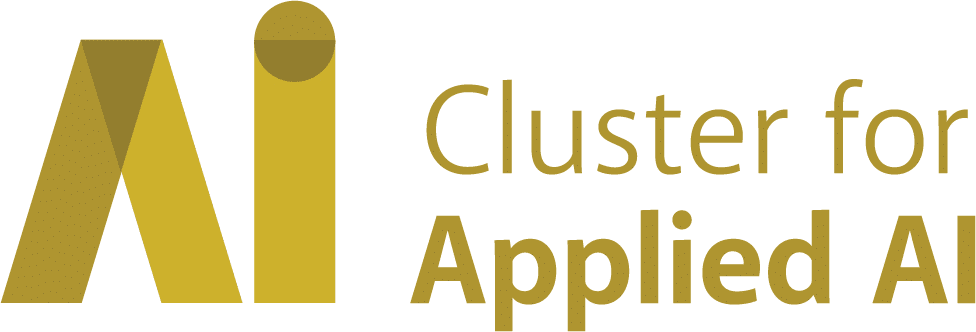Before the summer, Advokatfirmaet Berngaard AS became part of the Cluster for Applied AI with a clear goal of learning - and teaching. The ambition has already been put into practice, through both partner collaboration and joint events.
- One of the pillars of the company is technology, and that's the department I belong to. I think what the business cluster does is really, really cool. For someone like me, who is far above average interested in technology, not only from a legal but also a practical perspective, it was important for both me and the firm to associate with a partner like Cluster for Applied AI - precisely to learn," says John E. Nilsen, senior lawyer at Advokatfirmaet Berngaard AS.
Berngaard is a medium-sized, full-service law firm that wants to be a challenger in a conformist market and a different workplace in a conformist industry. The firm will soon be 20 years old and prides itself on putting people and customers at the center.
Nilsen also reveals that the company has a strong focus on the green shift.
- To be able to assist, you need to understand
In addition to a desire to learn as much as possible about the application of artificial intelligence (AI) from others who work with it every day, the senior lawyer is also ready to make his and his firm's specific expertise available to other cluster partners.

- "I learned early on in my career that to be able to assist in an area, you need to understand what's actually happening 'in the trenches'. This has been the main motivation for joining the cluster. Hopefully we can also contribute in the legal field. There's no denying that when it comes to both regulation and the legal issues surrounding artificial intelligence, there are a myriad of challenges," Nilsen points out. He elaborates:
- With the EU's digitalization strategy and Norway's national strategy for artificial intelligence, we are on the verge of regulation in a "very short" time. The already established regulations that affect AI as a technology have not been taken into account, and I hope that we can contribute with a kind of navigation in the regulatory network for players in the early and intermediate phases.
Artificial intelligence in everyday lawyer life
Having been responsible for mapping how artificial intelligence will affect the company and the industry, Nilsen is not yet worried.
- "What we've seen is that no one is going to lose their job, but there will be a different approach to lawyers. Where we used to spend a lot of time on document analysis or document drafting, for example, that task may be assigned to an AI model. There are already good tools in the market that we want to test and use," he says.
Nilsen also believes that in the future, it will be a requirement from the customer to have some kind of AI system in place and tools that do the heavy lifting to increase overall efficiency.
- In five years' time, I think AI will be significantly more integrated into the legal industry than it is today. I think everyday life will involve a closer relationship with the client, rather than sitting and producing as much "back office". There will be much more focus on tailoring, maintaining relationships and business in general," he predicts.
Legal challenges when using AI
Although Nilsen welcomes the technology into his everyday work, he is clear that the use of artificial intelligence brings with it certain legal challenges - such as compliance with codes of conduct, privacy and intellectual property rights.
- The biggest challenge is data collection. We are subject to statutory guidelines for good legal practice, such as confidentiality and a number of other provisions that can be problematic to circumvent by using AI. This applies in particular to open AI models, such as forms of generative AI like ChatGPT," he says.
This is because such open, public AI models store the data fed into them to train them and become even more intelligent.
- There are now more business versions of closed systems, which means that the input data is not passed on to train the AI model further or shared in any other way. This is very positive, but there is limited transparency from the suppliers, which in turn can create uncertainty," Nilsen points out.
Partner benefits and events
Cluster leader for the Cluster for Applied AI, Tore Lie, makes no secret of the fact that he is ecstatic to have Advoktafirmaet Berngaard as a cluster member as we move forward.
- "Having a partner who is not only a law firm, but who also understands technology, is fantastic. We get an awful lot of inquiries and questions every day related to the use of AI in a responsible manner, and I feel that Berngaard brings a lot of good expertise to the table," comments Lie. He adds:
- One example is IFE and Berngaard, who have already come together to discuss issues surrounding the responsible and ethical use of artificial intelligence.
The cluster leader is also very pleased that the AI clinic can now lean on the legal expertise that Berngaard represents as an offer to the cluster partners.
- It's also fantastic that they have already taken the initiative to organize cluster events. On Wednesday, December 6, we invite you to the evening lecture "Due diligence of technology companies" in Oslo. Here, participants will get valuable tips and tricks to ensure a robust and insightful DD process.
